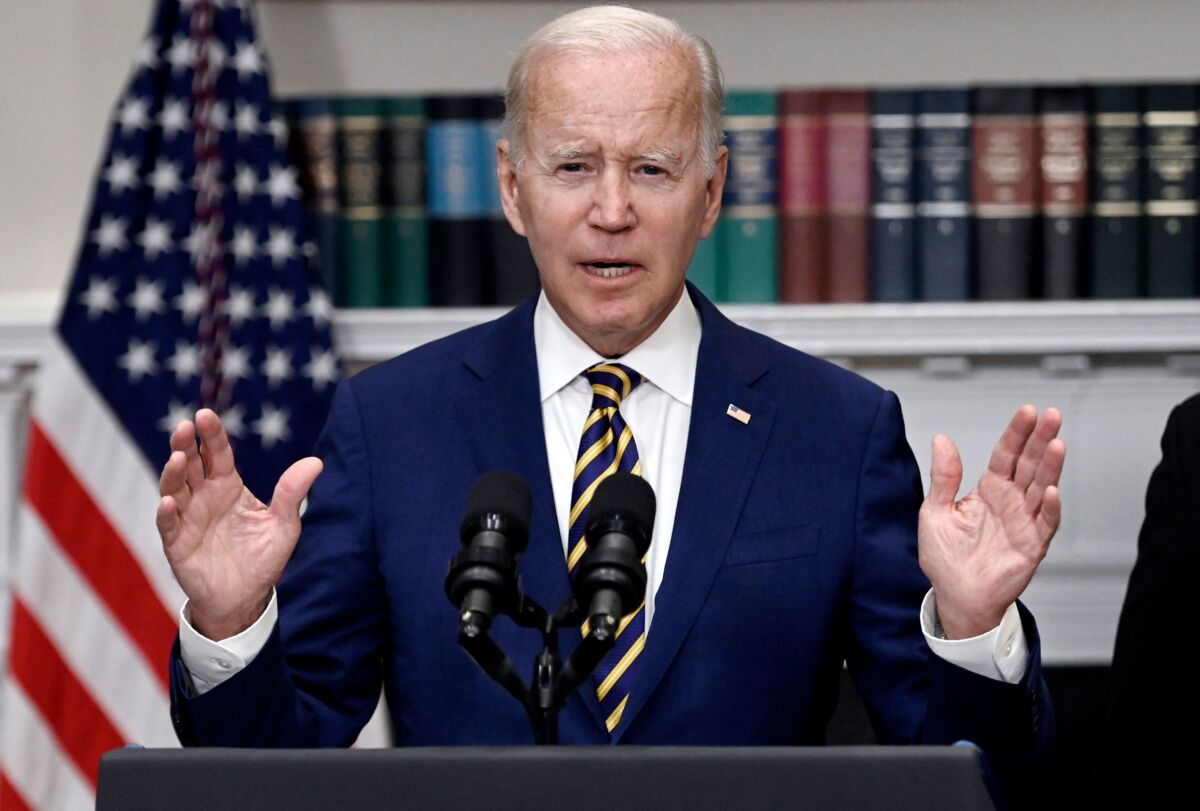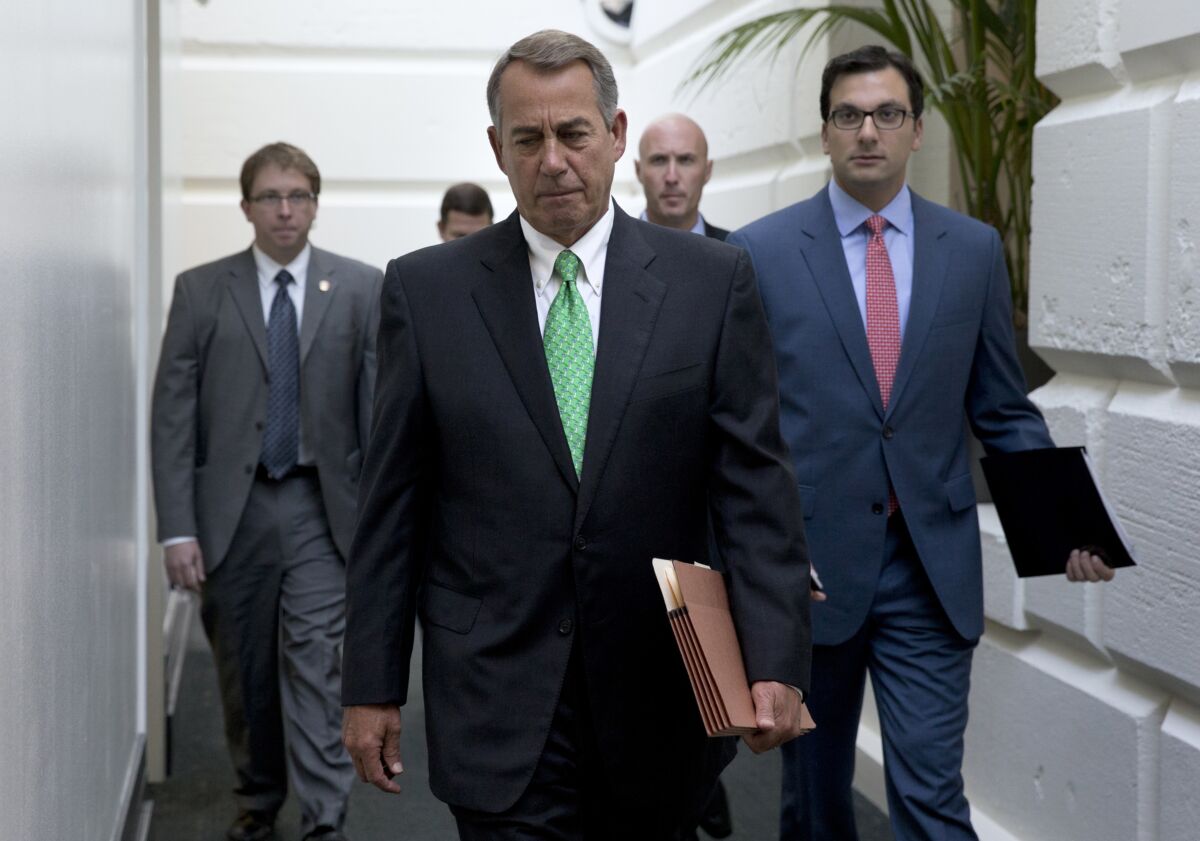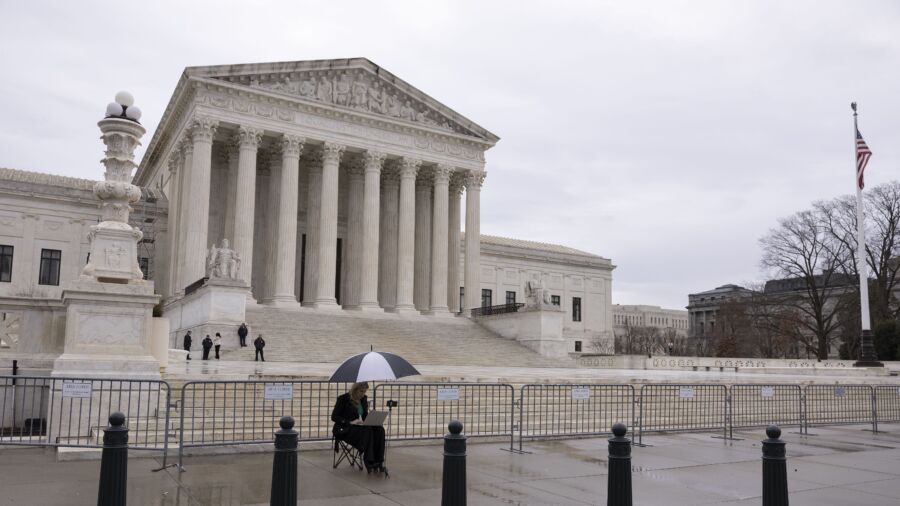On Tuesday, Feb. 28, the United States Supreme Court will hear arguments regarding challenges on the legality of the Biden administration’s contested program to forgive billions of dollars in federally-backed student loan debt. Confirmation that the High Court would hear the case came on Dec. 1, 2022.
The Biden administration announced the three-pronged Student Debt Relief program in a Fact Sheet on Aug. 24, 2022, just a little over two months before the Nov. 8, 2022, midterm elections. As previously reported by The Epoch Times, some suggested the program was one of several efforts to “buy votes.”
“Virtually every legal scholar that I have spoken to has said that the president of the United States really doesn’t have the authority to do this, and the people at the White House and Domestic Policy Council know that,” Tom Basile told The Epoch Times. “But they also know they couldn’t get it through Congress so they figure they would do this and let people believe they were going to be able to do this.”
Basile also suggested that this wasn’t the first time the Biden administration has pushed for a program they knew would face legal challenges so they could make Republicans “look like the bad guys by trying to uphold the rule of law.”
“They knew it would be litigated,” Basile noted, adding that the move is “very similar” to what the administration did with the eviction moratorium.
Basile, best known as the host of the Newsmax program “America Right Now,” is an adjunct professor at Fordham University and a member of the New York State Bar Association.
Because of the legal challenges, the Biden administration was forced to delay the implementation of his plan several times.
The Arguments

There are currently two legal challenges to Biden’s student loan forgiveness program.
Republicans and conservative groups argue that Biden doesn’t have the power to cancel consumer debt without Congressional approval and that the policy itself is harmful.
In September, the nonpartisan Congressional Budget Office estimated that Biden’s program, if implemented, would cost U.S. taxpayers around $400 billion—a figure that critics say underestimates the scope of the cost that will actually settle upon the shoulders of U.S. taxpayers.
In the meantime, the Biden administration insists that it is acting within the law, arguing that the Heroes Act of 2003 grants the U.S. Secretary of Education the authority to waive regulations related to student loans during national emergencies. The United States has been operating under an Emergency Declaration due to COVID since March 13, 2020.
Biden v. Nebraska
On Sept. 29, 2022, Republican attorneys general in six states—Arkansas, Iowa, Kansas, Missouri, Nebraska, and South Carolina—filed a challenge (pdf), asking the Supreme Court to consider the legality of the Biden administration’s student debt relief program, asserting that the plan exceeds the Secretary of Education’s authority.
While the six states allege that Biden’s student loan forgiveness plan exceeds the Secretary of Education’s authority, the Biden administration argues that the Higher Education Relief Opportunities for Students (HEROES) Act of 2003 authorizes the secretary to waive or modify statutes during or in the aftermath of national emergencies—provides the Secretary of Education the authority to implement the debt relief program.
The Eighth Circuit ruled that Missouri does have standing, based on harm that would be suffered by the Missouri Higher Education Loan Authority (MOHELA), a loan provider created by Missouri statute. Plaintiffs further argue that the forgiveness program could harm state tax revenues and diminish investments tied to student loans. Plaintiffs further argue that the secretary’s action is not authorized by statute because the economic conditions used to justify the student loan forgiveness plan are not sufficiently connected to the COVID-19 emergency and that its purpose is to keep certain borrowers from suffering further financial trouble in relation to their student loans.
As stated in the White House’s fact sheet, an objective of the plan is to: “Advance racial equity.”
“By targeting relief to borrowers with the highest economic need, the Administration’s actions are likely to help narrow the racial wealth gap,” the Biden administration explained, alleging that, “Black students are more likely to have to borrow for school and more likely to take out larger loans,” and that “Black borrowers are twice as likely to have received Pell Grants compared to their white peers. Other borrowers of color are also more likely than their peers to receive Pell Grants.”
Due to these reasons, the plaintiffs are asking the court to shut down the program, asserting that it is unconstitutional and “not remotely tailored to address the effects of the pandemic on federal student loan borrowers.”
Department of Education v. Brown
On Oct. 10, 2022, a separate lawsuit (pdf) was filed in the state of Texas on behalf of two student-loan borrowers, Myra Brown and Alexander Taylor, who argue that “the Administrative Procedure Act’s notice-and-comment procedures exist for good reason: to ensure that unelected administrators, who are not directly accountable to the populace, are forced to justify their quasi-legislative rulemaking before an informed and skeptical public.”
“Nothing in this Act shall be held to diminish the constitutional rights of any person or to limit or repeal additional requirements imposed by statute or otherwise recognized by law,” the statute clarifies. “Except as otherwise required by law, all requirements or privileges relating to evidence or procedure shall apply equally to agencies and persons. If any provision of this Act or the application thereof is held invalid, the remainder of this Act or other applications of such provision shall not be affected.”
It is further argued that the Biden administration failed to follow federal law when it rolled out its debt-forgiveness plan. Federal law (pdf) requires that government agencies allow at least 30 days after publication of a program for the public to submit “written data, views, or arguments” regarding the proposed rule.
“Instead of providing notice and seeking comment from the public, the Department hammered out the critical details of the Program in secret and with an eye toward securing debt forgiveness in time for the November election,” the Republican AGs argue in the brief.
“Along the way, the Department made numerous arbitrary decisions about the Program, including which individuals will receive debt forgiveness, how much of their debt will be forgiven, and which types of debt will qualify for the Program.”
White House Responds
In a legal brief filed in January 2022, the Biden administration defended itself, insisting that the HEROES Act of 2003 authorizes the Secretary of Education to “waive or modify any statutory or regulatory provision applicable to” student aid programs when “necessary in connection with a war or other military operation or national emergency.”
“To protect student-loan borrowers affected by a national emergency from student-debt-related financial harm, Congress provided the Secretary of Education with authority to waive or modify statutory and regulatory provisions governing their student-loan obligations under specified conditions,” the administration contends. “In August 2022, the Secretary announced a plan to use that statutory authority to provide targeted debt relief to millions of student-loan borrowers suffering the continuing economic fallout of an unprecedented global pandemic.”

However, John Boehner, Howard “Buck” McKeon, and John Kline—the former Republican House members who drafted the HEROES Act—filed an amicus brief (pdf) asserting that, by passing the measure, “Congress never intended anything like the loan cancellation effort underway here.”
“Despite the staggering scope of this regulatory action, it was taken with breathtaking informality and opacity,” the brief clarified. “The Department did not undertake the notice-and-comment process required for rulemaking, much less solicit any public input. It did not even issue a formal order or directive setting out its cancellation program. Instead, it issued a press release on August 12th along with two legal memoranda providing its justifications, and, later, a hastily created a FAQ section on its website.”
On Sept. 27, 2022, attorneys for Frank Garrison filed another complaint against the U.S. Department of Education (pdf), arguing that the HEROES Act only authorizes the Secretary of Education to “waive or modify any statutory or regulatory provision applicable to” student aid programs when “necessary in connection with a war or other military operation or national emergency.”
“Importantly, to qualify for such a waiver or modification, individuals must reside or be employed in a ‘disaster area’ as declared by a federal, state, or local official in connection with a national emergency,” the brief explains, insisting that “concluding that the entire nation is a ‘disaster area’ because of the COVID pandemic, the administration claims that the Secretary of Education has the power to ‘automatically’ issue blanket loan forgiveness to 8 million borrowers …”
Dozens of organizations and individuals, including civil rights groups, labor unions, legal experts, and state governments, filed amicus briefs or “friend of the court” documents in support of the Biden administration’s plan.
The Supreme Court’s decisions in the cases are expected before the end of June. Considering the High Court’s 6-3 conservative-leaning majority, some speculate that Biden’s program will be struck down. Others suggest the Biden administration will lose the battle because the merits of the case against the legality of the program is strong.
From The Epoch Times

